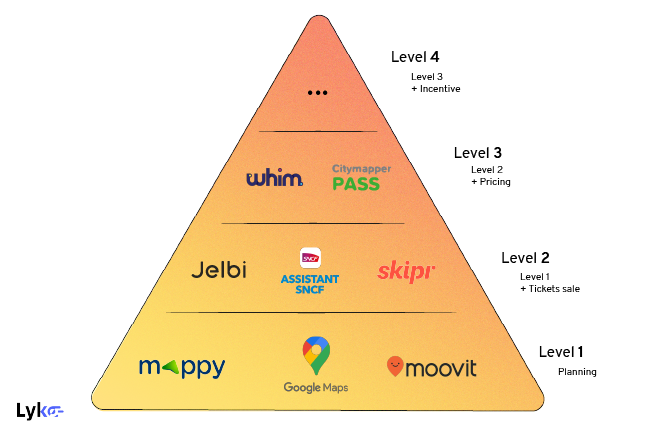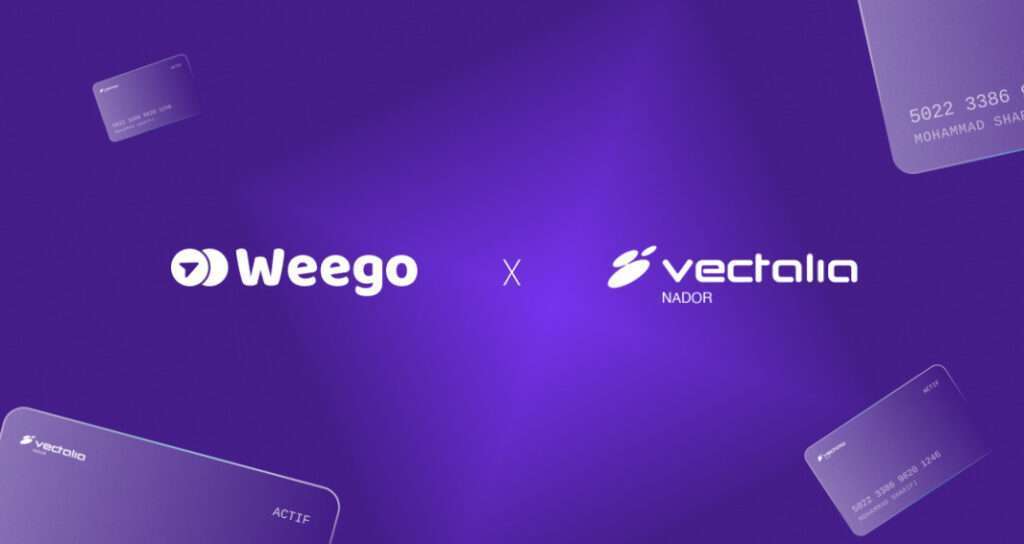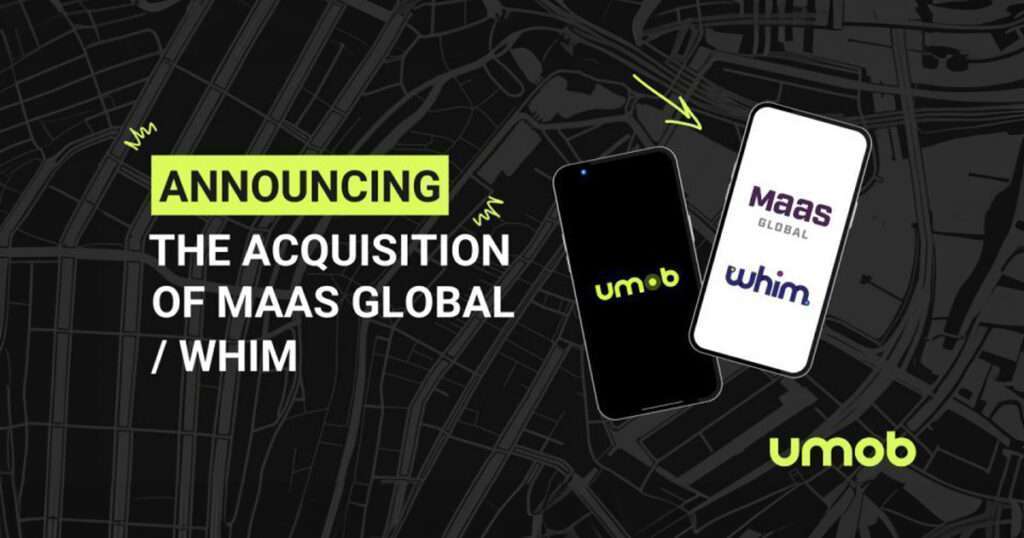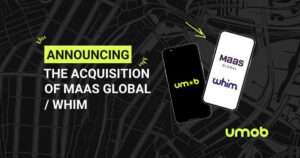Where public transport, self-service scooters, on-demand transport or car-sharing have gradually deployed apps for their own services, the Mobility as a Service (MaaS meaning) concept brings them all together on a single platform. Thanks to MaaS, you can simply find the best route, pay for your journey, validate your ticket or unlock your scooter. For your information, this article echoes our Global MaaS Ecosystem Mapping, conducted in December 2022. A valuable benchmark, entirely free of charge, identifying nearly 200 players in the MaaS value chain (MaaS applications, MaaS providers, ticketing solutions, organizations…).

MaaS is the holy grail of the mobility sector.
The arrival of a multitude of actors is upsetting the balance that has been established for decades. These new transport offers are changing the behaviour of users. The problem is no longer finding the right mode of transport to make a journey, but how to combine all these offers so that our daily and occasional journeys are faster, more economical and more sustainable.
Moreover, urban congestion has also continued to increase : + 20 travel time points between 2008 and 2016 in most European capitals, according to a BCG analysis of the TomTom Traffic Index in 2016. One of the reasons ? Public and private transport services with very little complementarity. These are the problems that the concept of “mobility as a service” (MaaS) could soon solve.
But what is MaaS?
Straight from the Nordic countries, it puts mobility at the service of the user. Its aim is to simplify mobility for the passenger. How does it do this? By offering different modes of transport on a single platform. However, we must first distinguish the principle of multimodality from the principle of intermodality, which is too often confused. Multimodal travel is when the user uses several modes of transport alternately, on different journeys. On the other hand, intermodality is when the user uses different modes of transport on the same journey. The benefits of MaaS are varied: to provide an alternative to the car while facilitating urban travel for all, thus reducing traffic jams and decreasing pollution.
How do MaaS applications work?

As indicated by Joël Hazan, Nikolaus Lang and Hind El Abassi Chraibi, from the Boston Consulting Group, there are 4 different levels of MaaS solutions that we have represented in the form of a pyramid.
- Level 1: “planning”. Here, the app purpose the best itinerar from the available data.
- Level 2: “planning + ticket sales”. At this level, in addition to having a personalised itinerary available, users can book different mobility services. The platforms take commissions on each sale.
- Level 3: “planning + ticket sales + fare setting”. The difference between level 2 and this one is that in addition to selling tickets, for example, the platforms use customer acquisition strategies by offering “all-inclusive” pricing.
- Level 4: “planning + ticket sales + pricing + incentives” Here, in addition to providing all the services mentioned above, the user will be encouraged to use a sustainable mode of transport. They may also be encouraged, for example, to use public transport during off-peak hours and thus benefit from reduced fares. There is a real emphasis on the use of soft mobility.

The MaaS market will be worth 9 billion dollars in 2019. In the space of 10 years, it would represent a market of 200 billion dollars. Moreover, as indicated in our infographics on European urban mobility solutions, MaaS platforms would interest nearly 59% of Europeans. One of the first players to really understand the interest and potential of MaaS was Whim.
MaaS and Helsinki, a love story
With BP Ventures’ recent investment of nearly $10 million, Whim is an application developed by the Finnish startup MaaS Global. It allows users to organise, book and pay for their journeys using several modes of transport in Helsinki. Often described as “the netflix of mobility”, the startup is a pioneer in the field of MaaS solutions.
To find out who it is, head to Helsinki. Finland’s capital is a pioneer in the MaaS sector. Let’s take a closer look at Whim, the concrete and successful example of the world’s first MaaS application. Developed by the Finnish startup MaaS Global in 2017, Whim allows users to organise, book and pay for their journeys on a single platform while using several modes of transport in Helsinki.
This MaaS (Mobility as a service) application offers several packages. They are suitable for both occasional and regular travellers via a mobile application. It is therefore possible to buy a one-off journey. Or you can take out a monthly subscription offering unlimited access to public transport and self-service bicycles (€59.7/month). Or you can choose the “Whim Unlimited” subscription, which gives you unlimited access to any means of transport (€499/month). Of course, it’s expensive, but take a moment to find out how much your car really costs.
When you calculate the cost price of your car every month, you quickly realise that this service is financially more interesting
Sampo Hietanen, CEO Of MaaS Global startup
A few years later, the Finnish start-up, often described as “the Netflix of mobility,” has become a reference. As much as the oil group BP Ventures has invested, nearly 10 million euros.
MaaS and Lyko, another love story
Providing a toolbox 100% focused on Mobillity as a Service, Lyko‘s main mission is to enable companies to deploy, enhance or integrate their own mobility solution. Through a powerful API, we aggregate many transport operators from all over the world. Bus, metro, train, VTC, taxi, parking, bicycle, scooters, etc…
In less than 10 minutes, integrate more than 2500 public and private transport services. From comparing intermodal journeys to booking, everything happens on a single platform. And all this with a single payment ! Learn more about our MaaS solution, do not hesitate to consult our website lyko.tech.
To go further, feel free to download for free our Global Mapping of MaaS ecosystem.






